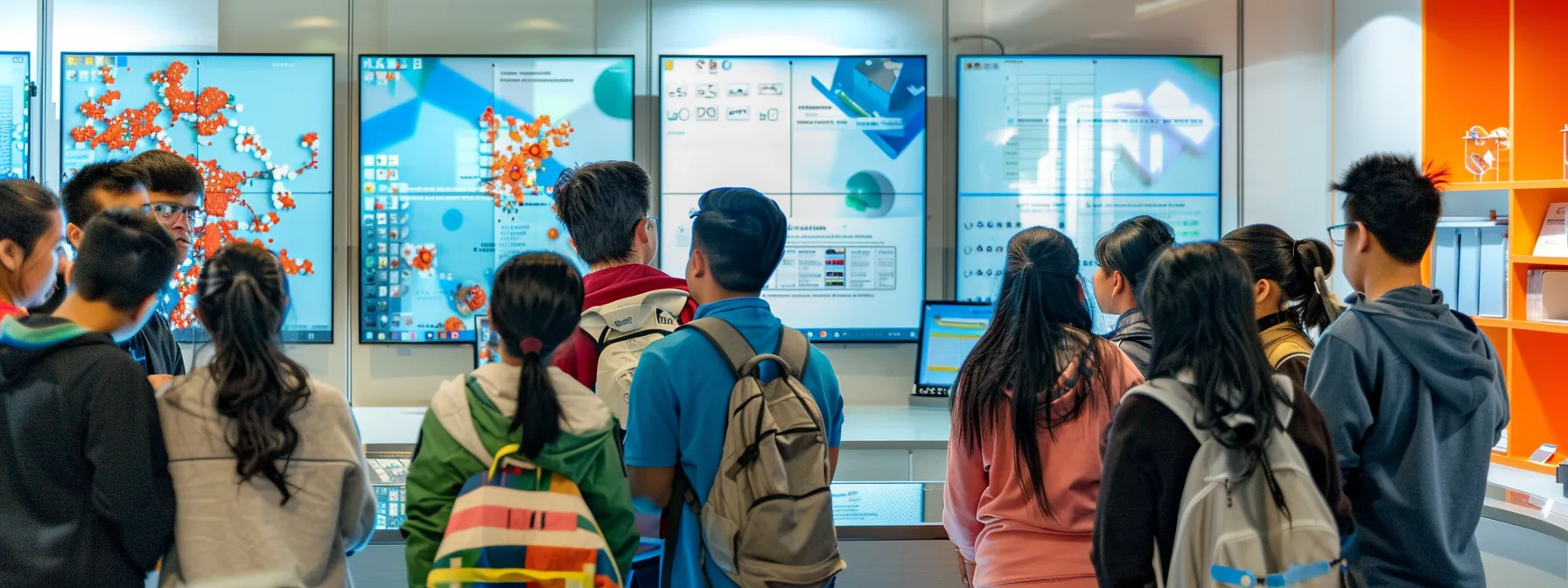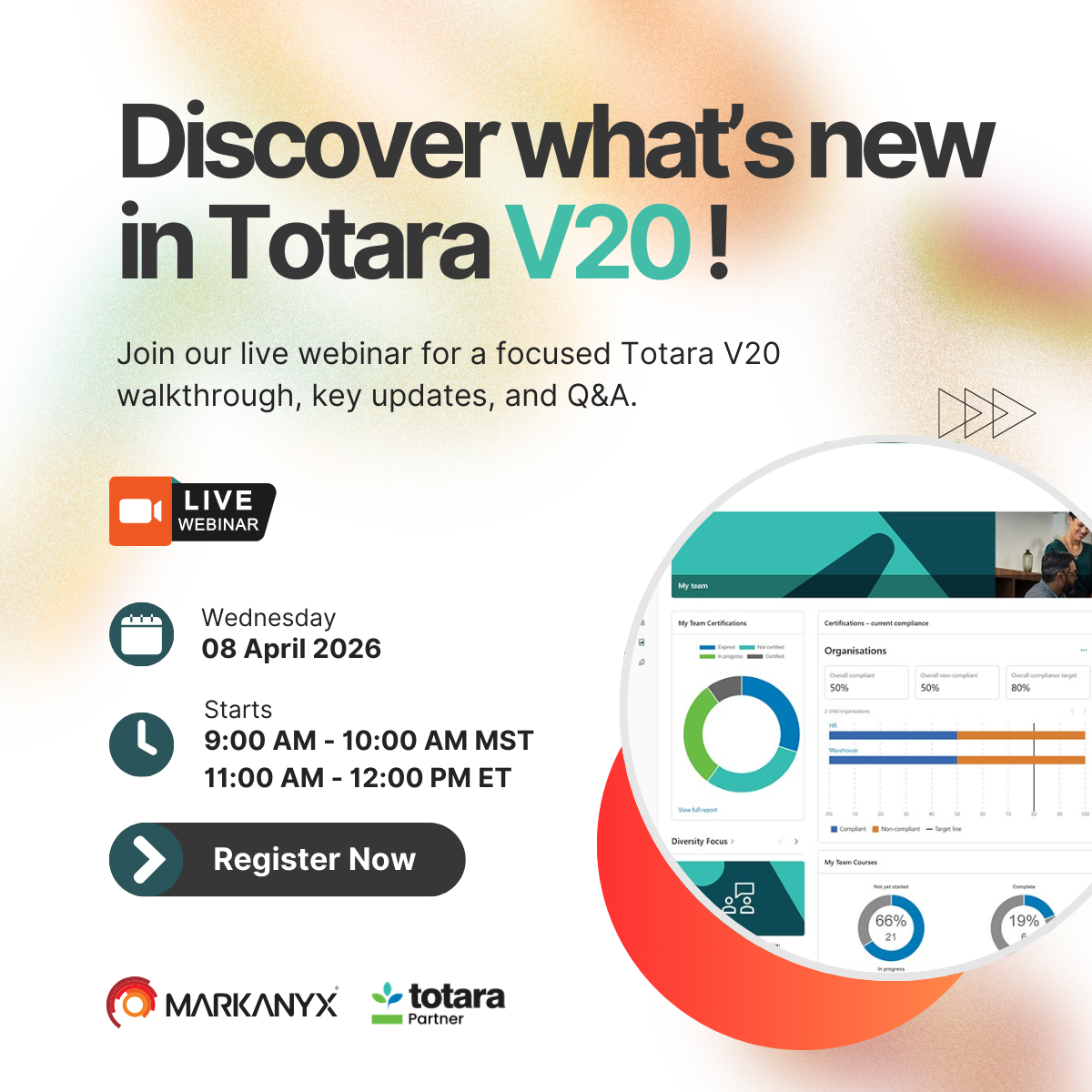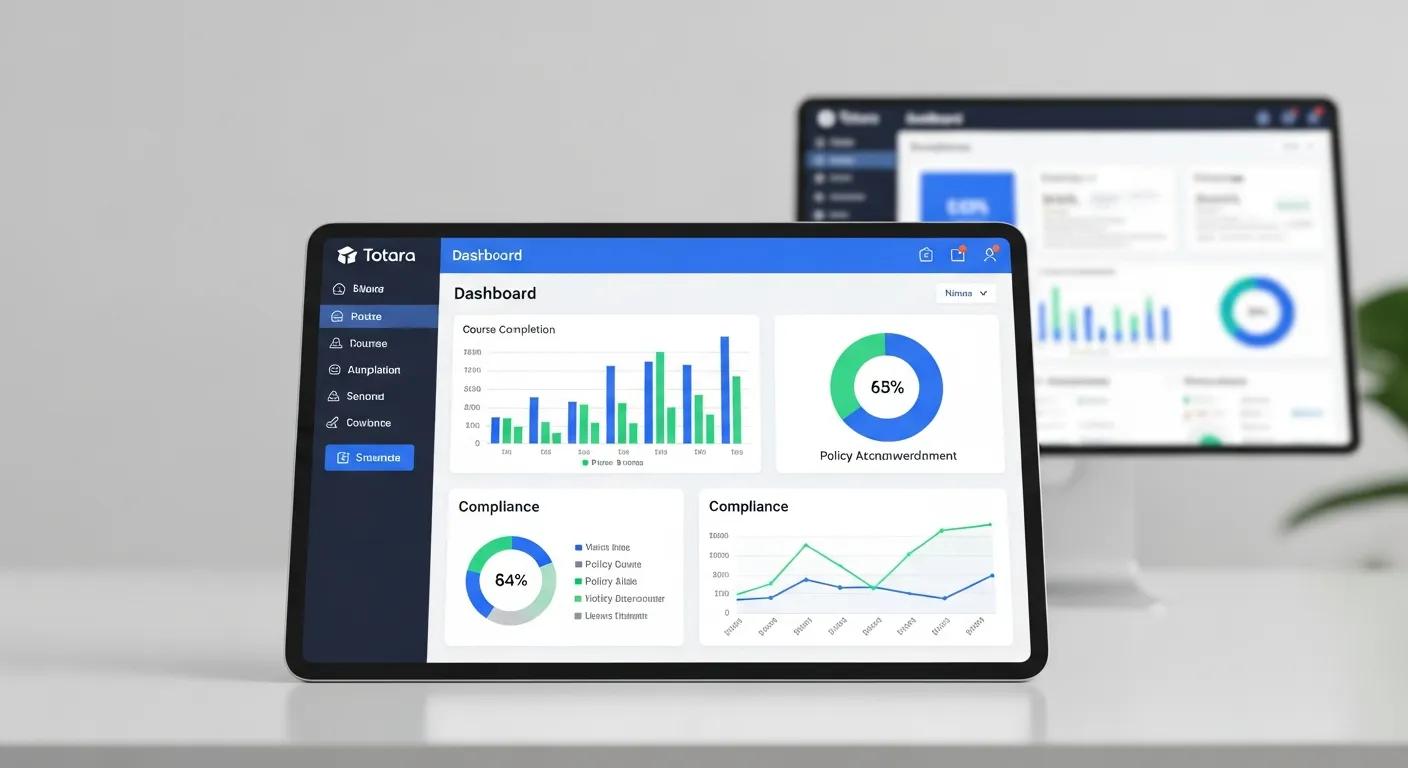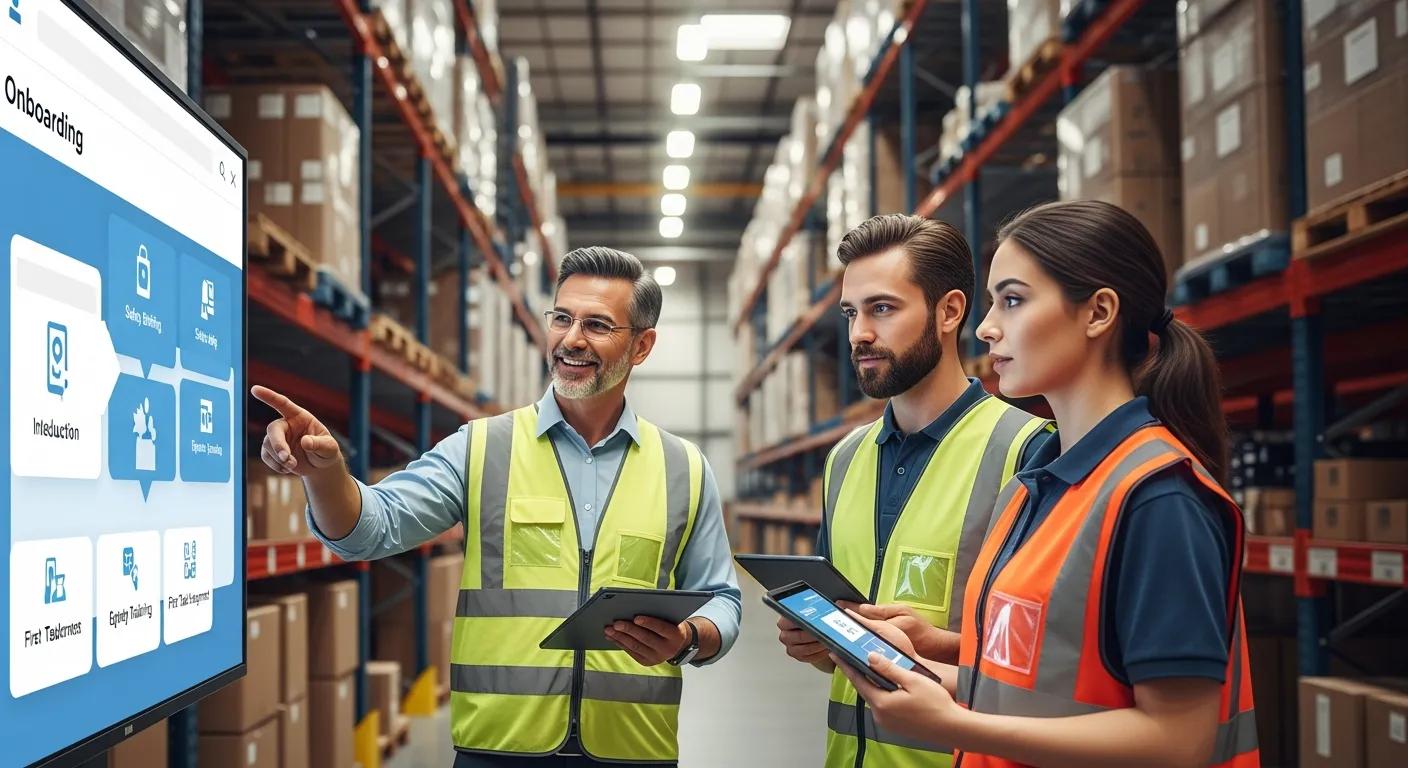Retail landscapes are swiftly changing, compelling businesses to find new avenues to improve good customer service and customer relationship management. An LMS platform stands out as a powerful tool in this transformation, reshaping how customers engage with brands. This post delves into the pivotal role LMS plays in customer education programs, the compelling benefits these programs impart, and actionable best practices for those looking to deploy them effectively. Readers will walk away with clear strategies to augment their content marketing efforts and create personalized learning experiences that foster deeper customer relationships. By understanding and implementing these LMS-driven approaches, retailers can enhance customer satisfaction and loyalty in a measurable way.
The Role of LMS in Enhancing Retail Customer Experience
Learning Management Systems (LMS) redefine the intersection between employee engagement and customer satisfaction in retail. Harnessing the power of LMS for customer management courses equips employees with the skills necessary for excellent service delivery. This focus on knowledge sharing fosters a well-informed workforce using platforms like Totara.
The following sections delve into how informed staff can dramatically improve client loyalty and showcase successful implementations of these educational programs within the retail sector.
Understanding Learning Management Systems in Retail
In the bustling landscape of retail, Learning Management Systems serve as virtual classrooms that bridge the knowledge gap between employees and the exemplary service customers expect. These platforms feature intuitive user interfaces and dashboards designed to engage retail employees with interactive video content and other multimedia resources. They empower companies to deliver consistent training and foster a culture of continuous learning, which is reflected in the positive interactions on the shop floor.
Transitioning from traditional to digital training methodologies, retailers who leverage LMS equip their staff with the tools to excel in customer service. This technology enables employees to customize their learning journey, providing a personal dashboard where they can track progress and revisit complex concepts through video tutorials, enhancing their proficiency. The role of a tailored, LMS-driven education program thus becomes pivotal for retailers aiming to elevate their company’s customer experience.
Connecting Customer Education to Satisfaction and Loyalty
In the realm of retail, the implementation of Learning Management Systems (LMS) that promote collaborative learning significantly impacts customer satisfaction and loyalty. An intuitive LMS interface enables employees to seamlessly access a wealth of knowledge, which they in turn apply to enhance the shopping experience. The direct correlation between well-educated staff and improved customer interactions spurs repeated business and enduring relationships, underlining the importance of investment in LMS technology for scalable education programs.
Equally essential is the management of educational content that can adapt to the unique dynamics of retail environments. Retailers employing scalable LMS solutions notice a marked improvement in knowledge retention and customer service skills among their employees. This capacity to scale allows for the customization of training to meet the evolving demands of both employees and customers, forming a solid foundation for loyalty that is fostered through empowered, knowledgeable staff.
Examples of Successful LMS Implementation in Retail
Leading retailers have witnessed a significant surge in productivity after deploying Software as a Service (SaaS) based LMS platforms within their operations. These systems have provided a centralized knowledge base that enables employees to access critical information on-the-go, enhancing their ability to address customer inquiries with speed and accuracy.
Implementing client relationship management courses through LMS has transformed workforce training, contributing to more consistent and elevated customer service standards across retail chains. Practical examples have demonstrated that employees with better access to tailored educational resources have excelled in creating memorable shopping experiences and nurturing stronger customer loyalty.
As retail shifts, customer education becomes the frontline. Discover how LMS programs are turning this challenge into a competitive advantage.
Benefits of LMS-Powered Customer Education Programs
Integrating Learning Management Systems (LMS) in retail heralds significant strides in customer education programs, serving key goals such as enhancing product knowledge, fostering robust customer relationships, and minimizing support inquiries through self-learning technologies. This approach weaves a culture where information is easily accessible, empowering customers across various mediums, including social media and company websites. Consequently, LMS-driven training and development initiatives not only streamline the learning process for employees but also position customers to be more informed and self-reliant, setting the stage for in-depth exploration in the subsequent sections.
Increasing Customer Product Knowledge
Enhancing product knowledge through customer service training is vital in the retail sector, where informed consumers often equate to increased satisfaction and loyalty. By leveraging the capabilities of Learning Management Systems (LMS), retailers can deliver comprehensive and accessible product education to their staff—training which ultimately benefits the end consumer. Such strategies aid in ensuring that all team members are proficient ambassadors of the products they sell, which is pivotal for maintaining high standards of customer service.
Retailers are increasingly adopting blended learning approaches within their LMS that merge traditional and digital training environments. Through this method, staff can utilize meticulously designed learning materials that cater to various learning styles, maximizing comprehension and retention. The accessibility of these resources, paired with the design principles that prioritize clear and engaging educational content, equips employees with the confidence to educate consumers and handle their inquiries effectively, fostering a knowledgeable customer base that is equipped to make informed purchasing decisions.
Building Stronger Customer Relationships Through Education
Building strong customer relationships in retail today relies on strategic, LMS-powered education programs that not only engage but also empower employees. Learning Management Systems (LMSs) such as Totara and Moodle, combined with web applications, play a pivotal role in enhancing client engagement by offering tailored, accessible learning experiences. Through advanced analytics, these systems provide retailers with critical insights to monitor, adjust, and continually improve the educational journey, ultimately increasing customer satisfaction.
While integrations with platforms like Zapier streamline certain processes, they often fail to deliver the seamless, full-featured connectivity required for a truly cohesive learning experience. That’s why, at Markanyx, we specialize in custom LMS integrations for Totara and Moodle, ensuring that each system is customized to meet your unique business vision, goals, and evolving needs. Our solutions empower your workforce and foster deeper customer relationships through a learning environment that adapts as your business grows.
In the mobile-driven retail landscape, we also recognize the importance of LMS applications that are both Android- and iOS-compatible. Ensuring these applications are lightweight on bandwidth is crucial, allowing employees to access up-to-date information quickly and without overloading device resources. This mobile flexibility enables your team to serve customers confidently and efficiently, helping build a knowledgeable, loyal community around your brand.
Contact us now to discuss how we can tailor a solution that meets the dynamic demands of your business. We’d love to hear from you and explore how we can craft an LMS experience that is as adaptable and forward-thinking as your brand.
Reducing Support Inquiries With Self-Service Learning
Learning Management Systems (LMS) are changing the retail landscape by equipping staff with the competencies required for customer care service training, which in turn reduces the volume of support inquiries. When retail employees have access to self-service learning modules that cover pertinent topics such as pricing, marketing, and human resources, they can resolve many customer issues independently. This self-sufficiency boosts customer satisfaction, as shoppers benefit from quick, informed responses to their questions, and empowers employees to handle queries with confidence and expertise.
Implementing an LMS that includes comprehensive customer service training programs serves as a proactive measure for retailers aiming to diminish the reliance on traditional support channels. Such systems provide a dual advantage: they optimize the day-to-day operations of human resources and marketing departments while ensuring that customer interactions are handled effectively and efficiently. The integration of LMS platforms leads to a knowledgeable workforce that can anticipate customer needs, provide accurate information on pricing and promotions, and address concerns before they escalate to further inquiries, thus enhancing the overall customer experience.
The power of an LMS to transform customer education is clear. Now, let us turn to the crafting of effective training programs that cement this knowledge into action.
Implementing Effective Customer Training Programs
To effectively enhance the retail customer experience with education, it is essential to concentrate on developing engaging educational content, selecting the right LMS platform tailored to retail needs, and employing strategies that foster customer participation. A consultant’s expertise in content creation can greatly aid retailers in fostering the adoption of education programs. This strategy enhances customer interaction and loyalty through informative learning paths. The following segments provide an in-depth examination of these topics, offering insight from content development to platform selection and engagement techniques.
Developing Engaging Educational Content for Retail Customers
Developing educational content for retail customer care courses online necessitates a blend of learning analytics and empathy to address customer pain points effectively. By incorporating data-driven insights into course design, educators can tailor materials that resonate with the practical needs and emotional experiences of the learner, fostering a deepened understanding of customer experience.
When constructing these courses, it is essential to integrate key principles of law and ethics that govern retail interactions. This ensures that retailers are not only empathetic but also adhere to legal standards, marrying compliance with a genuine concern for the customer journey, ultimately leading to a more positive customer experience.
Selecting the Right LMS Platform for Retail Needs
Selecting the ideal LMS platform is critical for retailers aiming to bolster client relationship management training. Retailers should focus on platforms known for robust functionality, like Totara, which offers market-relevant features such as personalized learning paths. This enables employees to engage with realistic scenarios, sharpening their skills and allowing them to apply knowledge effectively in real-world retail settings.
Integration capabilities are paramount when evaluating an LMS platform for retail applications. A platform that seamlessly combines with existing systems facilitates streamlined client relationship management training and minimizes learning disruptions. Moreover, considering a platform’s scalability ensures that as the retail market evolves, the LMS can adapt to emerging training needs, thereby securing a competitive edge for the business.
Strategies to Encourage Customer Participation
To cultivate brand loyalty and enhance customer participation in LMS-powered education programs, retailers must prioritize usability and intuitive design in their learning platforms. By ensuring that their LMS is user-friendly, retailers can reduce the risk of customers perceiving the platform as a scam and improve engagement rates. This emphasis on usability encourages learners to confidently navigate relationship management courses, thereby strengthening the connection between knowledge acquisition and practical application in customer interactions.
Additionally, incorporating empirical research into the course content can stimulate customer participation by addressing specific retail challenges. By applying insights from retail-focused studies, education programs can offer actionable solutions that resonate with real-world scenarios. Retailers who demonstrate such first-hand expertise foster a deeper understanding among their customers, solidifying trust and paving the way for sustained consumer relationships within their brand ecosystem.
From implementing dynamic customer training programs, we move to the heart of individuality. Retail customers seek to learn; let’s tailor that knowledge to fit them as snugly as a well-chosen garment.
Personalizing the Learning Experience for Retail Customers
In today’s retail market, personalizing the learning experience is key to enhancing customer service outcomes. By utilizing data analytics, retailers can tailor education programs to individual needs, ensuring that consumer interactions are informed and effective. Multilingual options in platforms expand reach, while mobile learning solutions enhance accessibility, providing sales associates with the soft skills and knowledge necessary to excel. Together, these strategies create customized learning journeys that drive retail success.
Utilizing Data Analytics to Customize Education
Data analytics serves as the backbone for educational customization in retail, fostering collaboration between employees through shared learning experiences. At Markanyx Solutions, we leverage cutting-edge technology to analyze learning patterns, which in turn informs the development of education programs. This targeted approach to training minimizes staff turnover by ensuring employees feel engaged and valued, all the while empowering them to deliver an enhanced customer experience – one that is marked by understanding and adeptness in upselling tactics.
Through the strategic use of data analytics, you can craft personalized learning paths that align with each retail employee’s knowledge and experience level. This uniquely tailored education can progressively refine their expertise, notably in customer interactions and product knowledge. The impact of such focused education is a smoother experience for the customer, facilitated by a workforce capable of understanding and meeting consumer needs precisely.
Offering Multilingual Learning Options
Providing multilingual learning options is essential in today’s retail landscape, where a diverse workforce brings varied language needs and cultural backgrounds. A Learning Management System (LMS) that offers content in multiple languages allows employees to engage with training materials in their native language, making it easier to grasp complex concepts like price adjustments, retail loss prevention, and customer service protocols. This level of personalization in educational content improves understanding, reduces miscommunication, and enhances interactions in multicultural environments, ultimately creating a more inclusive and effective team.
At Markanyx, we go beyond simply offering a learning management platform. Did you know that we provide our LMS in over 35 languages, along with dedicated customer support, development, and customization in English, French, Arabic and Spanish? We speak your language—and we’re here to help your team succeed, no matter where they are.
Enhancing Accessibility With Mobile Learning Solutions

Mobile learning solutions provided by Learning Management Systems are pivotal in making educational content on goods and services more accessible to retail employees. By enabling on-demand training through mobile devices, sales staff can receive point-of-sale instruction and health and safety updates directly on the shop floor, ensuring they deliver superior customer service.
These mobile platforms support a more inclusive learning environment, permitting staff to engage with training materials whenever and wherever suits them best. This flexibility ensures that employees can continually improve their knowledge and skills, which positively reflects in the quality of customer interactions and ultimately, enhances the customer experience.
The right training molds better salespeople. Let’s now see how their growth reflects on the customer’s journey.
Measuring the Impact of Education Programs on Customer Experience
Assessing the effectiveness of LMS-powered education programs in the retail sector hinges on analyzing key metrics to gauge success, gathering consumer feedback, and adapting strategies based on performance data. These precise measures protect the investment in personalized learning initiatives and optimize consumer education outcomes. Integrating insights from software analysis ensures that educational efforts directly enhance the retail customer experience, a crucial matter in today’s competitive landscape. The subsequent sections will delve into the particulars of evaluating program impact, responding to customer insights, and refining educational content for sustained excellence in service delivery.
Key Metrics to Evaluate Program Success
To ascertain the efficacy of education programs in the retail space, the examination of key metrics is crucial. The learning environment’s return on investment is measured not only in monetary gains but also in the enhancement of employees’ problem-solving skills and adaptation of learning styles. These metrics provide tangible evidence of the program’s success, guiding retailers to make informed decisions about future training investments.
Engagement levels within the program serve as a strong indicator of its impact on participants, revealing how effectively the content meets the needs of diverse learning styles. Tracking problem-solving improvements pre and post-implementation allows retailers to quantify the program’s practical utility in the workplace. Such data informs whether the learning environment has truly transformed employees into customer experience champions and quantifies the return on investment in human capital development.
Gathering and Responding to Customer Feedback
In our mission to streamline the learning experience for retail employees, we at Markanyx use customer feedback as a crucial measure of the effectiveness of our LMS-powered education programs. By carefully analyzing quiz responses and survey feedback, we identify areas for improvement, ensuring our courses uphold the high standards required for regulatory compliance and excellence in customer service.
Attention to customer feedback also plays a critical role in employee retention strategies, revealing how Learning Management Systems can support staff in developing skill sets that lead to confident customer interactions. Responds to feedback with updates to training materials and methodologies, demonstrating a commitment to evolving their LMS offerings in line with the dynamic needs of both employees and customers.
Adapting Programs Based on Performance Data
When performance data from LMS-powered customer care courses indicates an upturn in staff competency, this often correlates with a decrease in churn rate, illustrating the program’s efficacy. Adjustments based on analytical findings can further hone these education efforts, infusing gamification for enhanced engagement or tailoring modules to reinforce rights and responsibilities in customer interactions.
Adaptation is a continual process where LMS data is scrutinized to guide the refinement of educational programs, ensuring that retail employees are equipped with cutting-edge skills. By analyzing metrics such as course completion rates and post-training evaluation scores, retailers can identify the need for evolving content or teaching strategies that boost participation and knowledge retention in customer care courses.
Education shapes the customer journey. Let’s uncover how an LMS ensures their path leads to success.
Best Practices for Success With LMS-Powered Customer Education
To ensure LMS-powered education programs achieve their full potential in enhancing the retail customer experience, organizations must implement best practices that align educational initiatives with precise business goals. These practices include harnessing multimedia resources for comprehensive onboarding and ongoing training in customer service, fostering collaboration across different teams within the establishment, and maintaining an acute awareness of emerging trends in both retail and education sectors. By focusing on such strategic areas, businesses, particularly within the United States, can create united efforts that yield significant improvements in service quality and employee performance.
Aligning Educational Initiatives With Business Goals
Aligning educational initiatives with business goals invigorates employee motivation and enhances customer engagement, creating a synergistic impact on the retail environment. When a Learning Management System (LMS) centers on core business objectives, such as improving service quality and adhering to consumer protection standards, it ensures that every aspect of employee training is directly contributing to the company’s overarching mission. This strategic alignment informs content specificity, leading to more focused and effective training sessions that deliver quantifiable improvements in customer service.
The incorporation of microlearning techniques in LMS-enabled education programs is particularly effective for this alignment, as it allows for the quick dissemination of targeted knowledge capsules relevant to daily operations and immediate business needs. An app interface for this learning methodology not only fosters continuous customer engagement but also provides a flexible, accessible platform for retail employees to stay updated on the latest trends in consumer needs and protection regulations. Such approaches ensure that the workforce remains agile and well-equipped to enhance the overall shopping experience.
Collaborating Across Teams for Unified Efforts
Ensuring success in courses on customer relationship management entails synchronized efforts from various teams within an organization. By uniting the wealth of knowledge from IT specialists who enhance LMS platforms with API integrations to marketing professionals who optimize the website for learner accessibility, retailers seed the foundations for robust staff training programs. Such collaboration fuels consistency in messaging and strategy, fostering loyalty through a seamlessly supported customer relationship management training experience.
This collective approach extends beyond inter-departmental cooperation, emphasizing the importance of alignment between educational content creators and frontline employees. When those who develop LMS training materials work closely with staff who interact with customers, the resulting courses on customer relationship management are tailored to address actual customer needs and pain points. Retailers that master this dynamic ensure that every interaction is informed by a comprehensive understanding of their clientele, thereby deepening loyalty and elevating the retail experience.
Staying Informed on Retail and Education Trends
Staying current with trends in retail and education is essential for leadership within any retail organization, especially when considering the deployment of LMS software. As consumer behaviour evolves and educational technology advances, organizational leadership must adjust their employment and training strategies to meet these changes. A dynamic LMS platform that adapts to the learning curve of employees and the shifting retail landscape assures that staff are consistently equipped with the latest skills and knowledge to enhance the customer experience.
Retailers leveraging LMS platforms must embrace a culture of continuous learning to remain competitive. By actively monitoring the latest trends in LMS software and retail best practices, employers can refine their educational programs to align with modern shopping habits and employee engagement techniques. This proactive approach to education ensures that team members are not only adept at managing customer relationships but also poised to anticipate and address emerging trends in retail, solidifying their position as industry leaders.
Conclusion: The Impact of LMS on Retail Customer Education and Service
LMS-powered education programs are transforming the retail industry by empowering employees with accessible, tailored knowledge that keeps pace with changing customer expectations. These platforms go beyond basic training, giving staff the confidence and skills to deliver exceptional service, thereby building stronger customer relationships and loyalty. By integrating customer feedback and performance insights, retailers can adapt their training programs in real time, ensuring alignment with both business goals and consumer needs.
At Markanyx Solutions, we specialize in LMS implementations designed to enhance retail customer support through wellness-powered education. Whether you’re aiming to refine employee training, boost engagement, or optimize the customer journey, we’re here to help.
Reach out for a free consultation to see how we can help your retail business create a customer experience that stands out in the market.





